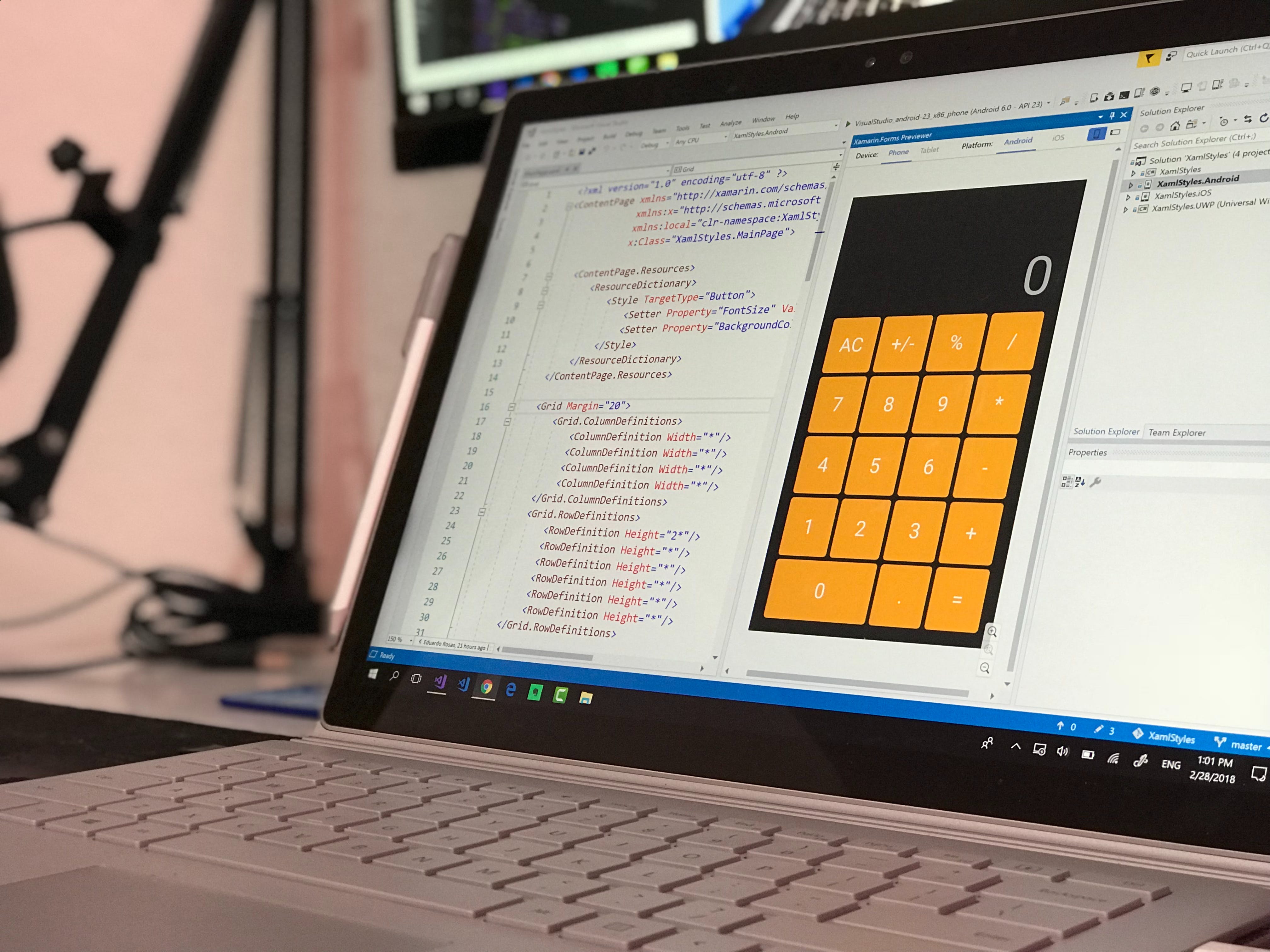Define Mobile Application Development: A Quick Guide

The realm of mobile application development encompasses the processes and procedures involved in writing software for small, wireless computing devices, such as smartphones or tablets. At its core, to define mobile application development is to understand the creation of application software that resides on a mobile device and serves to provide users with similar services to those accessed on PCs. However, mobile applications are often designed with the considerations for the unique features and hardware of mobile devices.
Mobile app development requires a comprehensive approach that includes concept, strategy, design, development, testing, and deployment. It demands a keen understanding of both the hardware and software limitations of mobile devices, the user interface (UI) considerations, as well as user experience (UX) design. Developers must also be adept in working with different platforms, such as iOS and Android, each with its own development environment and languages like Swift for iOS apps and Kotlin or Java for Android apps.
To succeed in this dynamic field, businesses must partner with seasoned developers that can navigate these complexities and deliver high-quality applications. Biz4Solutions excels in this arena, offering robust mobile app development services that not only define a mobile application development process but also ensure that the end product is efficient, user-friendly, and aligns with the clients’ business goals.
Whether you are looking to develop a native app for specific platforms or a cross-platform app that functions seamlessly across multiple devices, our team of experts can guide you through the process to ensure that your app meets the high standards that the market demands.
Key Phases in Mobile App Creation

Mobile app creation is an intricate process that involves several key phases, each integral to the development of a successful mobile application. The journey starts with the Ideation and Conceptualization phase, where the groundwork for the app is established through brainstorming sessions, market research, and defining the app’s purpose. Following this is the Planning stage, where the scope, timelines, and resources needed are laid out.
The next critical phase is Design and User Experience (UX), where designers create the app’s look and feel, ensuring it is intuitive and engaging for the end-user. This phase involves creating wireframes, mockups, and prototypes. Subsequently, the Development phase comes into play, where developers write the code to bring the app’s functionalities to life, followed by the Testing phase, where the app undergoes rigorous quality assurance to identify and fix any bugs or issues.
Once the app is polished and ready, it enters the Launch phase, where it is released on the respective app stores. The final phase is Maintenance and Updates, which involves continuous monitoring and updating the app to ensure it keeps up with the evolving user needs and technological advancements.
Each of these phases requires a unique set of skills and tools, and their successful execution is crucial for the app’s market performance. At Biz4Solutions, our approach to mobile app development is methodical and well-structured, ensuring all these phases are executed to perfection for the delivery of a high-quality mobile application that stands out in the competitive market.
Technologies Powering Modern Mobile Apps

Modern mobile applications are powered by a host of advanced technologies that have revolutionized the way developers create and users engage with apps. At the core, mobile app development is supported by two primary platforms: iOS and Android. Developers use Swift and Objective-C for iOS, while Kotlin and Java are the go-tos for Android development. These native technologies ensure optimal performance and user experience but require separate codebases for each platform.
To address this and to expedite the development process, cross-platform technologies like React Native and Flutter have become increasingly popular. They allow developers to write code once and deploy it on both iOS and Android platforms, significantly reducing development time and costs.
Cloud technologies, such as AWS, Google Cloud, and Microsoft Azure, are empowering mobile apps with scalable infrastructure, data storage solutions, and extensive computing capabilities. Meanwhile, backend as a service (BaaS) platforms provide developers with ready-made backends, speeding up the development cycle and enabling a focus on the frontend user experience.
Other technologies like Machine Learning (ML), Artificial Intelligence (AI), and Augmented Reality (AR) are also being integrated into mobile apps, providing innovative features such as personalized recommendations, intelligent chatbots, and immersive experiences that engage users on a deeper level.
At Biz4Solutions, we stay at the forefront of these technologies, harnessing their power to deliver digital solutions that are not just functional, but also cutting-edge, providing our clients with the competitive edge needed in today’s fast-paced market.
Designing User-Centric Mobile Applications
The essence of a successful mobile application lies in its design philosophy, where the user is the focal point of the entire development process. Designing user-centric mobile applications means prioritizing the user experience (UX) at every stage, from conceptualization to the final product. A meticulous approach to user interface (UI) design is crucial as it encompasses the app’s visual aesthetics as well as the ease with which users can interact with it.
Creating a user-centric design starts with understanding the target audience’s needs and preferences. This involves comprehensive research and user testing to gather insights that inform the design process. A well-designed app must offer intuitive navigation, fast loading times, and smooth transitions that collectively contribute to a seamless user journey.
Accessibility is another key component of user-centric design. Ensuring that the app is usable by people with varying abilities is not only a matter of inclusivity but also expands the app’s reach. This includes features like voice commands, screen readers, and adjustable text sizes. Moreover, adhering to the latest design trends and guidelines, such as Material Design for Android and Human Interface Guidelines for iOS, helps in creating an app that feels familiar and easy to use.
To achieve this, designers and developers need to work in harmony, translating the user’s needs into a functional and aesthetically pleasing mobile experience. Biz4Solutions, with its expertise in creating digital solutions, excels in delivering apps that are not just visually striking but also exceptionally user-friendly, ensuring that the end-users find value and satisfaction in every interaction with the app.
Challenges and Best Practices in App Development

Mobile application development can be a complex endeavor, fraught with challenges that developers must navigate efficiently. One of the main hurdles is dealing with the diversity of devices and operating systems. Ensuring compatibility across various platforms and screen sizes requires a robust testing strategy and can significantly increase development time and costs.
Another challenge is maintaining app performance and speed in the face of increasing functionality. As apps become more feature-rich, developers must optimize code and resources to prevent sluggishness, which can lead to user frustration and app abandonment. Security is also a paramount concern, with developers needing to protect sensitive user data against breaches and cyber threats.
- Adaptability: Use responsive design principles to ensure that the app performs well on different devices and resolutions.
- Minimalism: Focus on the core features to keep the app lightweight and efficient, avoiding unnecessary complexity.
- Security: Implement robust encryption methods and regular security audits to safeguard user data.
- Testing: Conduct extensive testing, including automated and manual tests, to catch and fix bugs early in the development process.
- User Feedback: Create mechanisms for users to provide feedback and use this information to iterate and improve the app.
Future Trends in Mobile Application Development

The landscape of mobile application development is ever-changing, with new trends emerging that have the potential to redefine how we interact with technology. One of the most anticipated trends is the integration of Artificial Intelligence and Machine Learning, which will make apps smarter and more adaptive to user preferences. This includes the use of AI for personalized experiences, chatbots for improved customer service, and predictive analytics to anticipate user behavior.
Another trend gaining momentum is the Internet of Things (IoT), where apps will increasingly communicate with a web of connected devices, transforming data into actionable insights and offering a seamless user experience. Furthermore, the rise of augmented reality (AR) and virtual reality (VR) is set to create immersive app experiences that can revolutionize industries like retail, education, and healthcare.
As 5G technology becomes more widespread, the enhanced connectivity will unlock new possibilities for developers to create high-performance apps with improved speed and reliability. Additionally, cloud integration continues to be a focus, as it offers scalability, data security, and real-time operation capabilities.
To stay ahead of these trends and ensure your business leverages the latest innovations in app development, consider partnering with Biz4Solutions. Our expertise in cutting-edge technologies can help you navigate the future of mobile app development and keep your business at the forefront of digital transformation. Visit our website to learn how we can assist in turning these emerging trends into opportunities for your enterprise.




